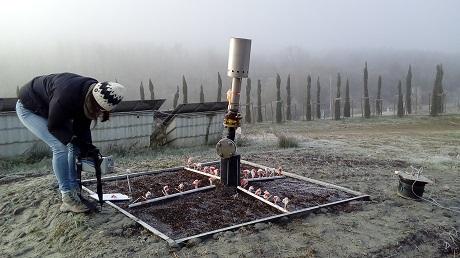
Extreme weather events like flooding, heatwaves and droughts are escalating. And, things look set to get worse in the coming decades. LIFE projects are working hard to alleviate the situation.
The EU is doing its utmost to fight climate change by introducing ambitious policies. One of these is the European Green Deal which is a plan to make the EU's economy sustainable. It aims to boost the efficient use of resources by moving to a clean, circular economy while restoring biodiversity and cutting pollution.
Many LIFE projects are supporting the European Green Deal. On the occasion of Ecomondo - the biggest digital exhibition for the green economy - here are some examples.
Restoring peatlands in five EU countries
Peatlands are unique ecosystems home to many rare and threatened species, found nowhere else. Peatlands also regulate our climate by storing massive amounts of carbon. Despite this, peatlands continue to be destroyed.
The Baltic States, Germany and Poland have huge areas of peatlands, which are in urgent need of conservation and restoration. The LIFE Peat Restore project team is reviving around 5 300 hectares of drained and degraded peatlands in these countries by filling ditches and building dams to stop the water from draining.
The team is also helping improve climate change mitigation by providing scientists and policymakers with carbon data from peatlands. Also, a handbook and set of guidelines will help politicians, authorities, and conservation managers to make the right decisions when it comes to peatlands’ use.

Cutting EU landfill emissions
When organic matter in landfill sites decays, it generates biogas, which creates a major challenge for climate change mitigation. The team behind LIFE RE Mida has tested two technologies for treating biogas, to reduce its contribution to the greenhouse effect. Both technologies had high-efficiency rates – of 80-90% – when treating methane and reducing odours. They could also reduce the cost of landfill post-treatment by up to two-thirds. The findings prompted a revision of Italy’s implementation of the EU Landfill Directive, to overcome barriers preventing the use of these technologies. If widely applied, they have great potential to reduce methane emissions across the EU.

Solving Europe’s e-waste problem
Electronic waste like computers, fridges and mobile phones are one of the EU’s fastest-growing waste streams. In fact, 12 million tonnes of e-waste are expected to be generated by the end of this year – the equivalent to the weight of around 30 000 jumbo jets.
The team at Slovenia’s LIFE turn to e-circular project wants to extend the life of electrical and electronic equipment. To do this, they are promoting a circular way of dealing with e-equipment through awareness-raising, access to infrastructure and services, digitalisation and legislation.
The project team recently set up its first “corner” where unwanted appliances like white goods and electronics that are still working can be deposited and rented out. The plan is to set up 60 more of these corners throughout Slovenia.
Helping the aquatic warbler rise again
Once widespread on fen mires and wet meadows, aquatic warbler numbers have dwindled dramatically due to habitat destruction from drainage, abandonment, and intensive agriculture.
The LIFEMagniDucatusAcrola project team has set out to conserve the threatened populations of Europe’s rarest passerine in Lithuania and Belarus. Their work involves translocating birds from Belarus to boost aquatic warbler populations in Poland and Lithuania as well as restoring the birds' habitats. A record number of 33 singing males, up from just eight before the project, have been found in Lithuania’s Žuvintas Biosphere Reserve. Overall, the aquatic warbler population in Lithuania has hit a record high of 316, an 84% increase on last year.
The team has also set up a biomass facility that handles late-cut grass from farmers. The grass is no longer suitable for fodder, so the facility processes it into grass pellets for animal bedding – a truly circular economy approach.
Meanwhile, an interactive website has proven extremely popular with schoolchildren.

Real-time monitoring for fewer vehicle emissions
Traffic causes 60% of all emissions in major cities. But vehicle emissions testing is currently only carried out by manufacturers in a controlled setting and not under real driving conditions. To achieve European air quality goals, testing on the road is critical.
The LIFE GySTRA project team is developing a system to precisely measure vehicle emissions in real driving conditions. Their Remote Sensing Device can measure pollutants emitted from vehicles instantly and accurately. The owners of high emitting vehicles are then sent a notification to repair their cars or risk receiving a warning.
Two of the devices have been monitoring up to 700 000 vehicles per year in Madrid, while a fleet of 150 buses has been measured continuously in Sofia, enabling city councils in both cities to better control urban emissions.
Details
- Publication date
- 3 November 2020

